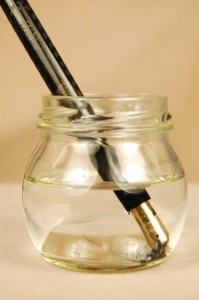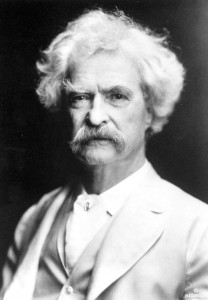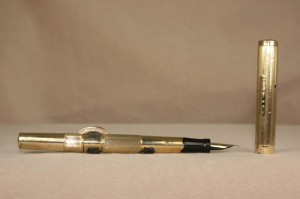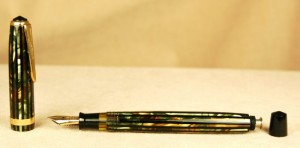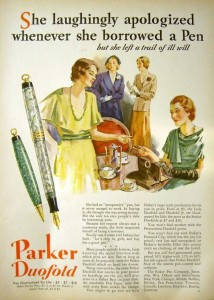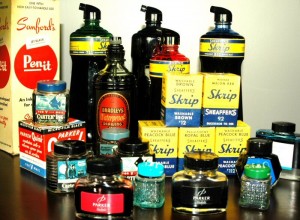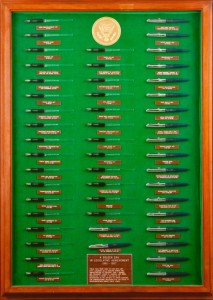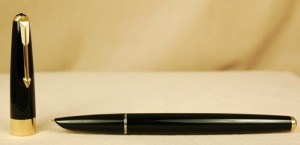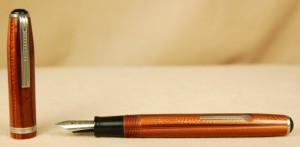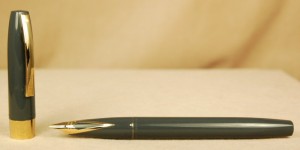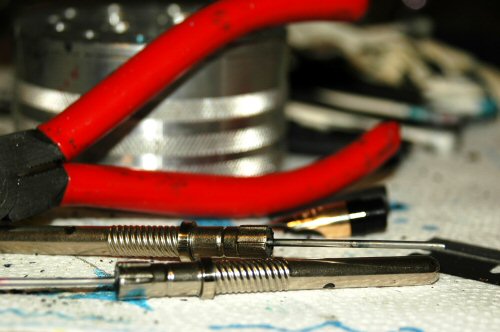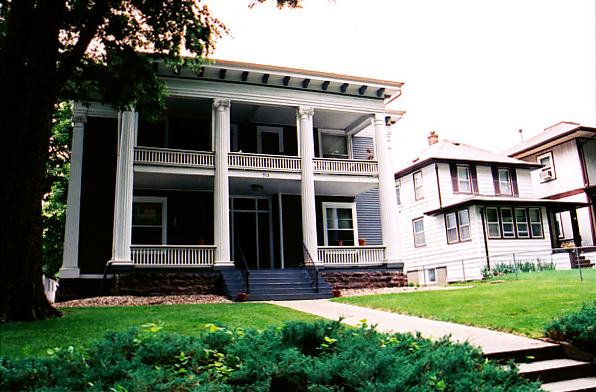
When I lived at 715 S. Phillips Avenue in Sioux Falls, S.D., there were all kinds of things that went bump in the night…and day. I’m not saying I believe in ghosts, but I’m at a loss for what to call what I experienced…and I wasn’t the only one.
The desire to preface this story is strong. I am not the type of guy who believes the Virgin Mary is trying to make a connection by appearing in a grilled cheese sandwich. Jesus isn’t hiding in a Cheez-It cracker. I don’t even believe in ghosts…but I did experience some things that I do not understand.
While living in Sioux Falls, South Dakota, I rented a beautiful apartment in a converted mansion on a lushly tree-lined street. Just a block south of downtown and walking distance from work, it was across the street from a large park. The colonial mansion had been built in 1922, and it was converted into three apartments—two boxcar long apartments on the ground floor and a huge residence on the top floor.
My apartment was the ground floor one on the right side of the photo. The spacious front room got morning sunlight. My library was connected to the front living room. Halfway down the long narrow hall on the right was my bedroom, to the left a tiny bathroom with a remarkable claw-foot bathtub the size of an Olympic pool. There was a utility closet at the end of the hall on the left and the kitchen and dining room were in the far west end of the unit. Summer sunlight peeked through the dappled shadows of the leaves in the evenings.
The apartment was always warm and inviting. The doors and trim were rich, darkly stained wood. The floors were recently sanded and refinished maple. Oh, how you could slide down the hall in socks!
The only thing remotely foreboding about the place was an old dumbwaiter shaft that had been converted into a skylight. It was in the center of the hall. Frosted glass windows kept the neighbors from looking in, and we used the empty space to store boxes and such. An even creepier double-doored cabinet was beneath the dumbwaiter shaft. No doubt this was where its engine used to be. It was ripe for a good hidden passage or secret storage compartment perfect for hiding bodies or treasure. I explored it several times in daylight with a flashlight. There wasn’t a trick floorboard or any passage or bones. Disappointing as hell, but that doesn’t mean it didn’t give me the willies from time to time.
No one will tell you I lack an overactive imagination. However, I never even thought about that space in the apartment 99% of the time, and I lived there for 3 ½ years. Every now and again it just gave me the heebie jeebies.
I settled in quickly during the late spring of 2003. I worked until 1 a.m. at a newspaper and didn’t usually wind down for bed until 4 a.m.
Then one hot, humid summer morning around 10 a.m. I heard a gentle knocking at my front door. The only person this could have been was a delivery man, so I got up at my equivalent of 5 a.m. to answer.
No one was there. The knocking had only stopped when I was within feet of the door. I checked the hall, the stairs, the basement, the front porch, the sidewalk out front. Nothing. Nobody could have gotten away that quickly and silently.
Befuddled, I went back into my apartment and went back to bed. Just as I was falling back to sleep there was a violent pounding on my front door. A commanding voice called out “NATHANIEL.” The pounding continued until I reached the front door.
It didn’t take my adrenaline-fueled body 10 seconds to get from my bed to the pounding door.
No one was there. I searched high and low for this person. Nothing.
I wasn’t scared. I was confused and angry. Who was pounding on my door and calling my name? I am dead certain I didn’t imagine or dream it. All of my neighbors were at work. I had no idea who it could be, especially since I didn’t know anybody in town outside of work.
I went back to bed. As soon as I got under the covers, it got cold—really cold. I got back up and turned off the air conditioner. I was still really cold in bed. I don’t know if I heard something, but I suddenly had the feeling I was no longer alone in the apartment. Whoever it was was in the doorway of my bedroom watching me. I thought it was a burglar who just realized he had picked the wrong house.
My back was turned to the door, and I could’t see who it was. My inner 5-year-old wanted to just pull the blankets over my head and hope whoever it was went away. My adult self said, “Screw this. If someone is about to kill you, you might as well go down fighting.”
I spun and sprang out of bed, landing on my feet, squaring off to fight.
No one was there. I ran into my living room. It was icebox cold, but no one was there. The library, bathroom, dining room, kitchen and closets were empty.
The apartment went back to normal temperatures.
There was no going back to sleep, and it was a sunny beautiful morning. It wasn’t until I got done searching the place that I began thinking it was a ghost. Yet, the one thing I couldn’t fathom was, “Who ever heard of a daytime haunting?”
All summer I began noticing little things going awry. I saw movement out of the corner of my eye. I’d hear a voice in an empty room.
There were no angry poltergeists seeking revenge. There were no lethal traps. No spirit ill will. I usually dismissed these odd occurrences.
For example, I never thought twice about a knee-level cabinet door in my kitchen opening on its own. It was an 80-year-old house. If the cabinets were a little off from their heyday, I didn’t care. I just kept closing it every time I found it open. No biggie.
Well, one night off from work around 8 or 9 p.m., I made dinner and was about to sit down to watch a movie on T.V. When I had carried my dinner into the living room from the kitchen, the cabinet door had re-opened. I closed it, and went to go eat.
Just as I was settling into the couch, that cabinet door starts opening and slamming itself shut about half a dozen times. Then my hall light flickered.
Now I was scared.
My mind raced, trying to figure out how I should react, especially if something materialized before me. Having seen “The Sixth Sense,” I figured I’d try to talk to it.
“All right, Ghost. You’ve got my attention. What do you want?”
No response. Then it occurred to me. My ghost was simply a practical joker ghost. He or she just liked causing mischief to get a rise out of me. I started laughing.
“All right, Ghost. Very funny. You got me.”
I marched right down the hallway, showing no fear, and discovered the cabinet door was open once again. I looked inside for any messages or clues from the spirit world. Nada. No fishing line or any other devices, either. Just my kitchen stuff. I slammed the cabinet shut, and went back to eat and watch my movie.
I saw and heard less and less from my prankster ghost over the coming months and years. Every now and again, I’d see or hear something, but I’d just talk to it. “Feelin’ bored or lonely, eh?”
I never got a response other than fewer visitations.
Then one day a new group of college grads moved into the unit overhead. They threw a raucous party one night that was still raging after I got home from work. I went upstairs to tell them to shut it down for the night, when they invited me in for a beer.
Who was I to turn down a beer and a party with a lot of hot girls?
I worked my way out to the balcony with my beer, and one of the guys asked, “You ever see anything around here?”
He seemed sincere, but I didn’t want to be the kook who started spouting off about ghost stories.
“What do you mean? See what?”
“Oh,” he nervously dismissed me. “Nothing. It’s a stupid question. You’ll think I’m a nut job.”
I wryly smiled. “You mean the ghost?”
His face filled with wide-eyed wonderment, like a child’s.
“You’ve seen it,” he said. “Who is it?”
“No, unfortunately, I haven’t seen it. Have you?”
“Sorta,” he said. “But if you haven’t seen it, how do you know about it.”
When I got done telling him my stories, he was noticeably paler.
“Relax,” I said. “This ghost won’t harm you. It just gets a kick out of messin’ with you. So you actually saw it.”
“Just part of it,” he said. “There are 3 other guys living here, and a couple nights ago, they all went out drinking, but I stayed home because I had to get up early the next day for a meeting.
“It was really only around 11 o’clock when I went to bed. My bedroom door was open, and as I’m lying there still awake, I hear the front door to the apartment open. I shout out something like, ‘Hey, which one of you losers decided to call it a night early?’ But nobody answered.
“I hear footsteps coming down the hall, so I look out my door and only see a foot as they walked passed. They keep walkin’ down the hall, and I’m like, ‘Hey, didn’t you hear me.’ Still no answer. So I get out of bed, and now there’s no one in the hall. I went into every guy’s bedroom, the bathrooms and out on the balcony. Nobody was here but me.”
“Cool,” I said. “What did the foot look like?”
“That was even stranger,” he said. “It was barefooted. I mean, we’re not that far from the bars, but far enough you aren’t gonna leave your shoes some place. I was totally freaked out.”
Work brought me to Chicago not too long after that, and I never heard any more ghost stories from my neighbors, but I always loved my encounters with the unexplained at 715 S. Phillips Ave. in Sioux Falls, South Dakota.
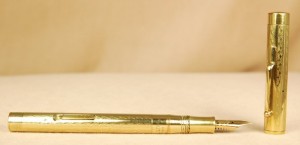


 Shopping Cart
Shopping Cart




